On the 10th anniversary of DACA, these Hoosiers reflect on its impact
For immigrant families, there are moments of wonder even in daily routines.
Alicia Cardoza-Regalado, 23, had finished giving a presentation to grade-school kids about working in city government. Carolina Figueroa, 32, was in between meetings at a coffee shop that was blaring Bad Bunny on a recent Friday morning. Manual Alarcon Nava, 21, was soaking up a June day, his last official “summer vacation,” before beginning senior year at Butler University.
Going to college and working in public service may not have been imaginable years ago without DACA, or Deferred Action for Childhood Arrivals.
Cardoza-Regalado, Figueroa and Alarcon Nava are all beneficiaries of the Obama-era executive order, which was announced on June 15, 2012, exactly 10 years ago. DACA temporarily protects children of undocumented immigrants from deportation and offers them work authorization.
It only applies to certain people — those who were brought to the U.S. before the age of 16, for instance, and those who don’t pose a national security or public safety risk.
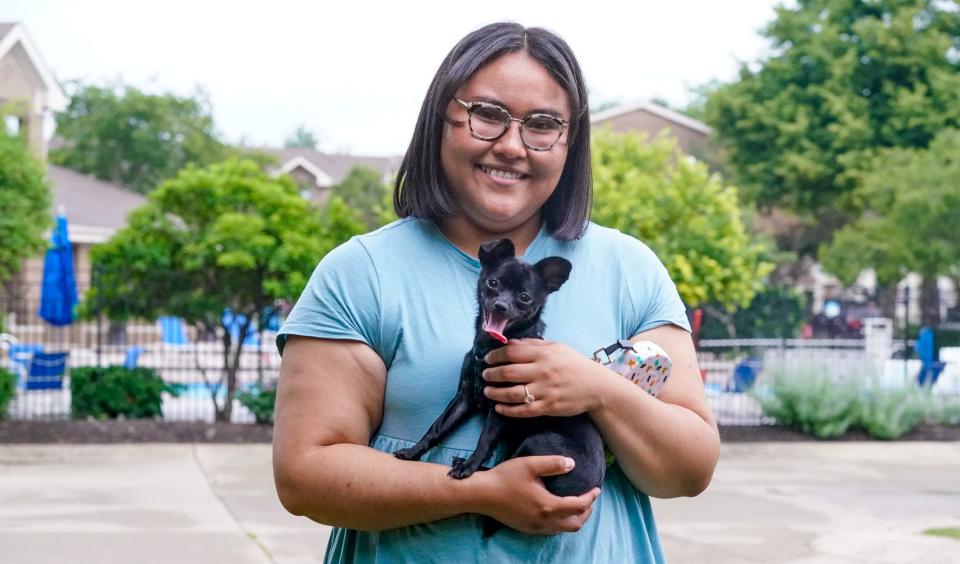
They’re Americans at heart, former President Barack Obama proclaimed in a speech. They were brought here, sometimes as infants, by no choice of their own. They’ve grown up here and studied at schools and pledged allegiance to the United States, he said.
“It makes no sense to expel talented young people,” Obama said in 2012. “Simply because of the actions of their parents — or because of the inaction of politicians.”
Ten years later, as the program has survived criticism, legal challenges and administration changes, DACA recipients in Indiana are living their lives out of the shadows, thanks to the executive order.
It isn’t perfect, nor is it a permanent solution, DACA recipients told IndyStar. But it’s been life-changing.
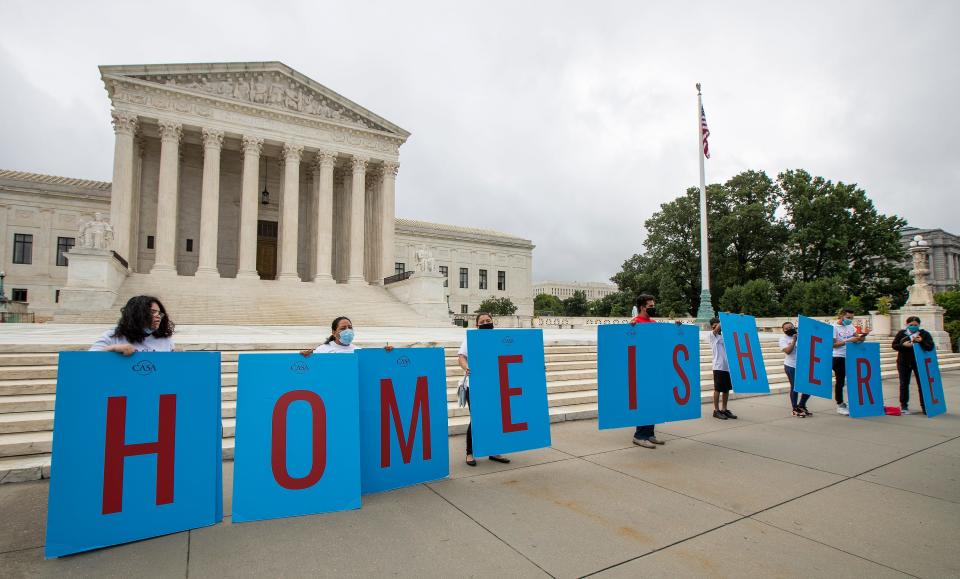
That's why their parents came here in the first place
In Durango, Mexico, Cardoza-Regalado’s parents had to drop out of elementary school to work in agriculture. They didn’t want the same life for her and her sister, and they couldn’t afford the costs of school there.
In Lima, Peru, Figueroa’s parents were worried about terrorist violence, so they left their accounting and banking careers to settle in Indianapolis. They worked in the pizza and child care industries while Figueroa was growing up.
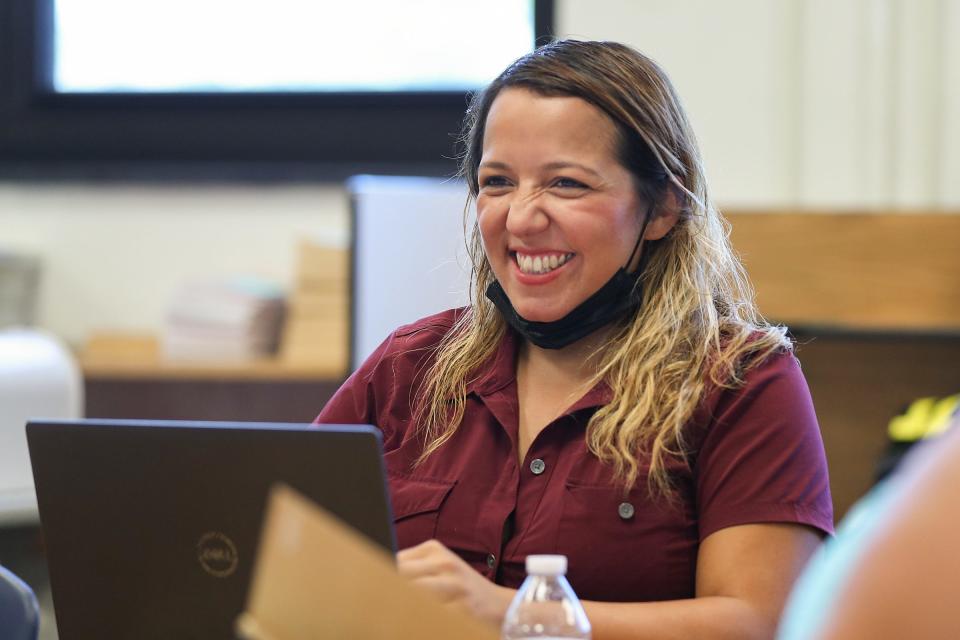
"The first generation, they are 100% sacrificing everything,” Figueroa said. “I remember very vividly when my dad's father passed away and when my mom's (parents) passed away. That's a hard pill to swallow because they can't go to the funeral. They can't go say goodbye."
When Cardoza-Regalado’s grandmother passed away years ago, she, too, remembers her mother’s pain of not being able to say the final goodbye. Her family discussed the possibility of her going back, but ultimately decided it was too risky. Her mother hasn’t been back to Mexico or seen her siblings in person for nearly two decades.
“It cost them their lives in a way,” Cardoza-Regalado said. “It’s like, you threw that all away… That pain and guilt I have … you literally put us before your family. And was it worth it?”
She and other immigrant children ask that question from time to time. Especially during life’s tough moments. Especially when they watch their parents work long hours, at the risk of being deported, while they themselves have the protection offered by DACA, Ana Santiago, 25, said.
“(My mom) has to live in the shadows. While we do our best to do the opposite,” Santiago said. “I think the biggest thing I can do for her is show her that her efforts were worth it.”
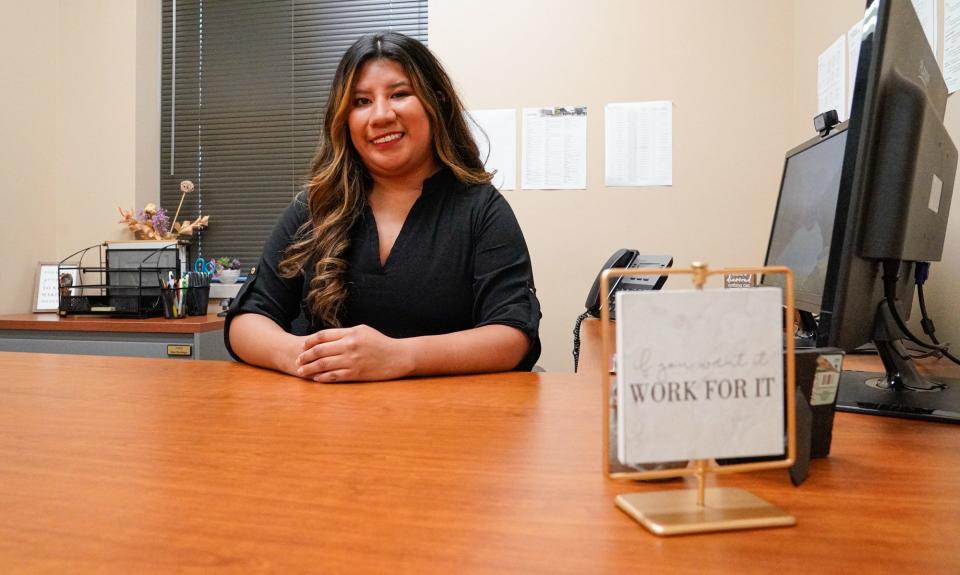
Before DACA, there were missed opportunities and heartbreaks
Before they had protection under DACA, being undocumented shaped a lot of their younger years. The secret of their status presented itself in different ways.
Ruth Davison, 28, remembers having to decline an invitation to a vacation with high school friends. She couldn’t fly without identification.
“When I was old enough to do those things,” Davison said, “That's when it kind of hit like, ‘Yeah, this is gonna be a different life for me.’”
She spent the following years, working extra hard to pay for her college, because of her status. She was ineligible for federal aid, so she relied on private scholarships to attend Notre Dame University. She stayed at her parents’ home in South Bend, instead of a dorm, and worked two part-time jobs, as a server and a tutor, all throughout college.
She was able to graduate a semester early, too, and save money there.
“(My parents) never really sat down and said ‘Hey, this is what you're lacking in this country and this is what your life (will look like),” Davison said. “There were enough peers around me the same age, that it kind of clicked that we were different in that way.”
Alarcon Nava remembers the excitement he felt when he learned about an immersive summer program in China during high school. He’d been learning Chinese for years, since sixth grade, because he loved the way languages bridged communication gaps.
When he filled out the program’s application, one question crushed his hopes: “Are you a U.S. citizen?”
“That was the biggest moment for me,” Alarcon Nava said, “because I felt like that was truly the one barrier that I wished did not exist for me"
Cardoza-Regalado also remembers a missed opportunity for 21st Century Scholars in seventh grade. She applied because she “always enjoyed school."
“I just remember bawling my eyes out when they were like, ‘You don't qualify,’” Cardoza-Regalado said. “That's when (my parents) had to give me the talk. … And just told me from that point on, just to be weary of who I told that I was undocumented.”
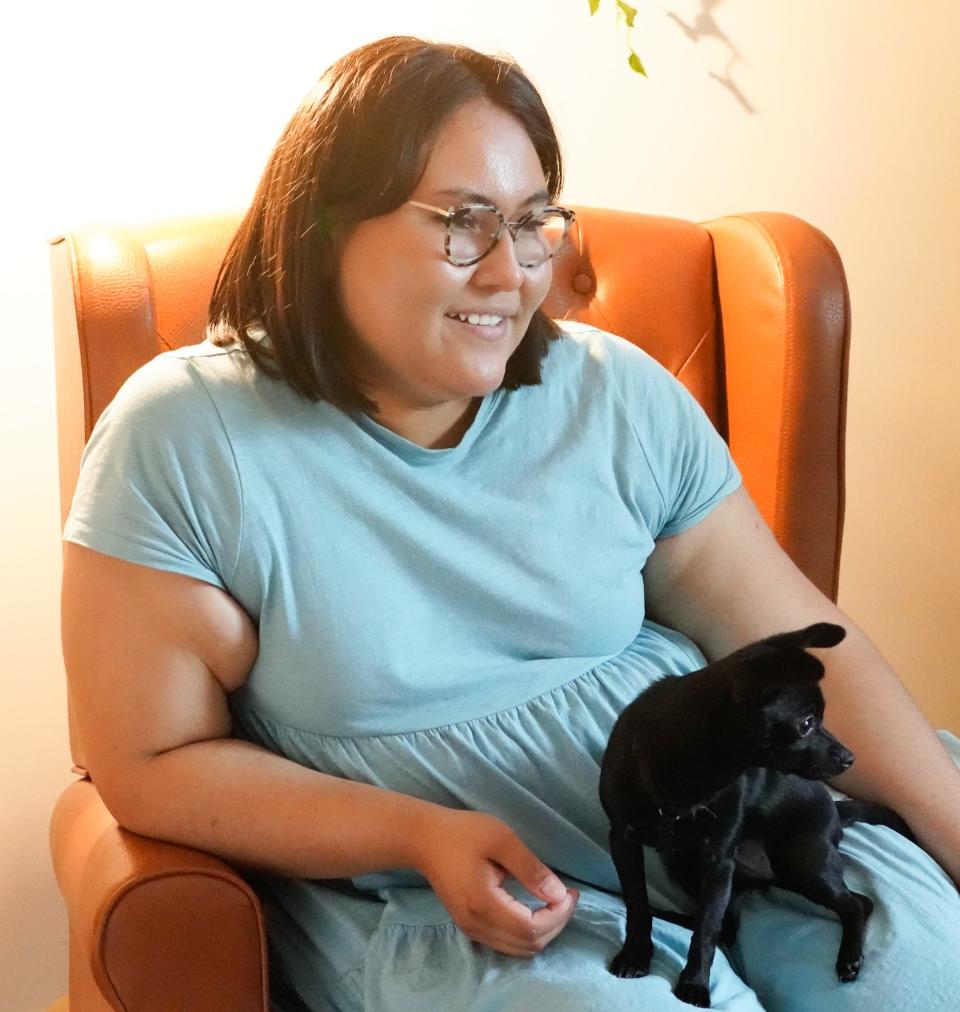
DACA 'really did change everything'
When DACA came, there was a wave of relief for undocumented families and immigrant advocates.
Figueroa was watching TV at her father's pizza shop when Obama made the announcement. As he listed out the criteria for applicants, she mentally checked off each box. She applied immediately, at the age of 22, while finishing her associate’s degree at Ivy Tech.
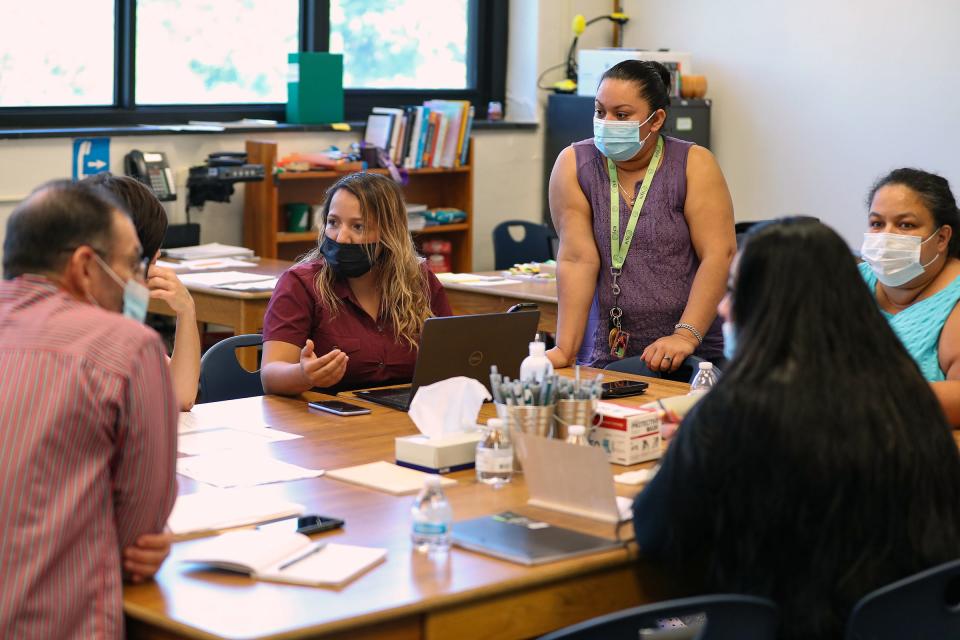
For Santiago, DACA arrived when she was a sophomore in high school.
She remembers the seemingly discreet drop-offs to fingerprint and background check appointments. Her mother would drop her off and park as far away as possible, Santiago said, while she walked into an unfamiliar government building with a large stack of papers.
The moment ushered in a new era for undocumented families.
Today, although more than 3.6 million “Dreamers” in the U.S. are eligible for the program, only about 650,000 are active DACA recipients, according to the Immigration Forum. The majority, about 80%, are from Mexico, but DACA recipients represent nearly 150 birth countries.
In Indiana, as of 2021, about 8,500 people are receiving DACA, according to the Migration Policy Institute.
Sarah Burrow, a director at Lewis Kappes law firm, happened to be at an immigration conference in Nashville when Obama announced DACA. They’d put up huge screens at the convention center for thousands of lawyers to sit together and watch the president speak. They ended with “tears of joy” and “lots of hugs.”
Since then, lawyers in central Indiana have helped thousands of clients with DACA applications and renewals. Even with their own status in question, her clients are always happy for their children, Burrow said.
“Parents are ecstatic for their children to have some sort of documentation, especially when it opens up opportunities for higher education, employment, driver's licenses,” Burrow said. “All of those things … it can really truly impact the future not just of that individual, but of his or her whole family.”
For some DACA recipients, the executive order helped change the trajectory of their lives.
She would have been accepted to college, Santiago said, but with DACA, she was able to actually afford higher education.
“It really did change everything after high school,” Santiago said.
Figueroa was able to visit her sick grandmother in Peru, years ago, because of DACA’s advance parole, which allows recipients to travel out of the country for educational or humanitarian reasons.
Cardoza-Regalado said, without DACA, she wouldn’t have married her husband, who she met at Marian University. Her father, who typically don't doesn't show emotion, wiped away tears on her graduation day.
"They threw away everything for my sister and I to be successful," Cardoza-Regalado said. "So they're just very proud, that they know that it was worth it."
Hopes for DACA's future
For all its success, DACA has its failings, too, recipients told IndyStar.
And as they learned under the Trump administration, their future is always at the mercy of who's in power. Every two years, DACA recipients have to apply for renewal, which up until recently, could only be done through the mail. Sometimes, family members are excluded from the program's protections.
They miss out on traveling, Alarcon Nava said, along with the luxury of "living unafraid."
"It's just constant fear," Alarcon Nava said. "Also just being constantly reminded that I will never be enough for this country. ... The biggest thing that I'm denied is the ability to be comfortable and fearless."
Some hope that DACA becomes a law, rather than an executive order, while others dream of pathways to citizenship, both for themselves and for other undocumented people. In their success, they see the potential successes of others.
"There are probably hundreds, thousands of us who have done so much because of the benefits of this program," Cardoza-Regalado said. "Imagine the talent that is hidden within our community.
"Even just looking at my family, I'm just baffled. I'm like, 'Wow, we made it.' Imagine if something like this was accessible to all other undocumented immigrants, how much better would this country be."
Contact Rashika Jaipuriar at rjaipuriar@gannett.com and follow her on Twitter @rashikajpr.
This article originally appeared on Indianapolis Star: DACA 10th anniversary: Dreamers in Indiana reflect on the program

